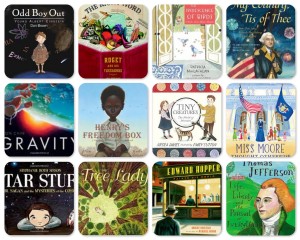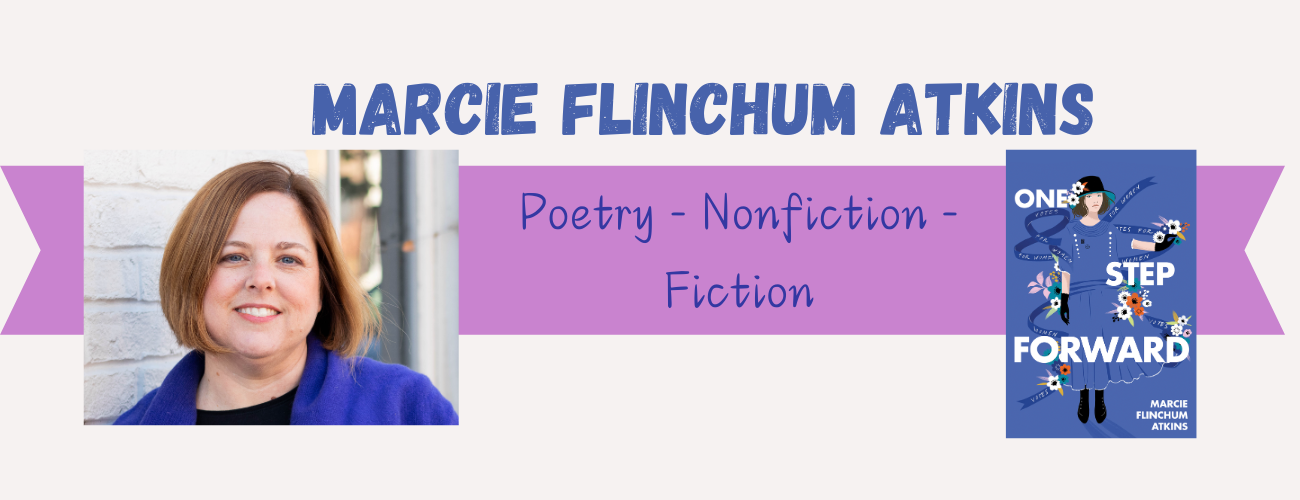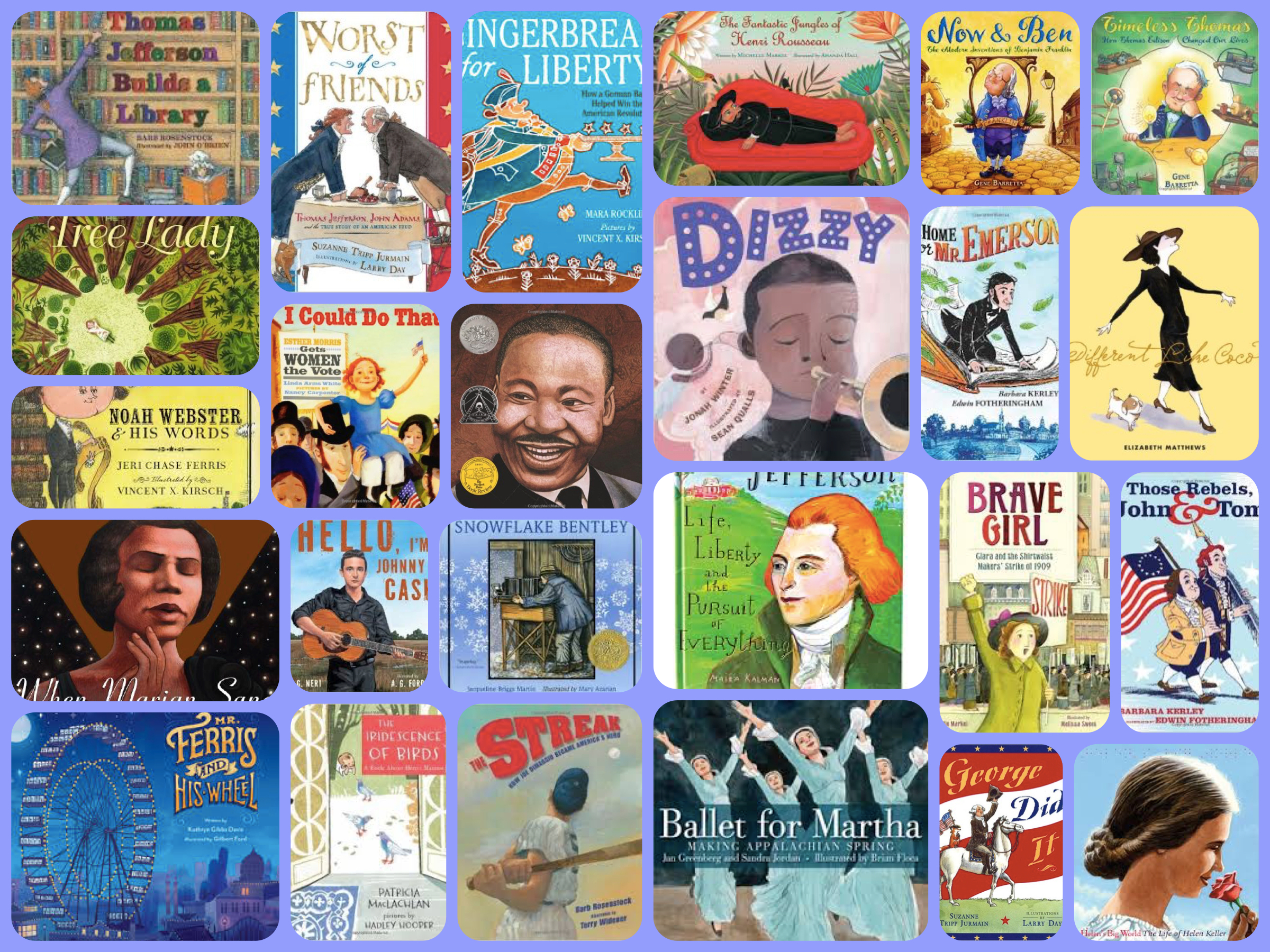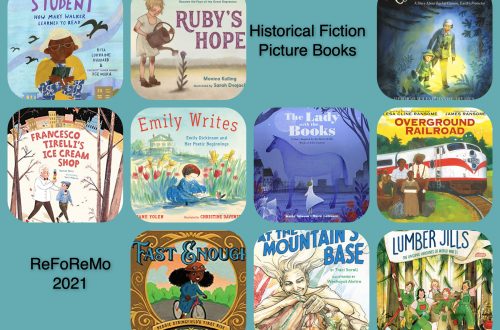Historical Fiction and Nonfiction Mentor Texts
 Mentor Texts
Mentor Texts
Whenever I’m reading someone else’s work for critique or whenever I’m struggling in a particular area of my writing, I always turn to mentor texts. They are like “guiding lights.”
I’ve been involved in some discussions online that are asking for great suggestions for picture book biographies (recent ones), historical fiction examples, and even books for the youngest of readers.
I created the list for writers who need some good mentor texts to guide them in learning about the genres and writing their own books. However, this list could easily be used for the classroom and I’ve shared many of these books with students.
I have also included this list in a PDF for easy printing.
But you may wonder why I delineated between historical fiction and nonfiction in my list or HOW I delineated.
Nonfiction vs Historical Fiction
I’ve noticed a lot of people who have been asking about what makes a book historical fiction. Here are some of my rules of thumb:
- Parts of the narrative that cannot be proven as fact
- Invented Dialogue
- First person POV (unless it’s an autobiography)
- Using the historical facts to create a believable, but fictional, story (example: using the facts of the Civil War battles and times to create a fictional story about a child during the Civil War)
How Can I Tell the Difference?
- Read it yourself.
- Read the author’s note at the back of the book. Most of the time, the author points out parts that he/she couldn’t find and had to imagine or invent. But they usually back up those imagined parts with impeccable research.
- Take a look at the CIP (Cataloging in Publication) information on the copyright page. While sometimes, it claims that books are biographies when they use invented dialogue, it does give you some guidance. It points you to where it should be shelved in the library (though there is some wiggle room), which also will give you a clue.
But, What if??????
There are those books that seem to fit firmly in one category, but really aren’t clear cut. Case in point: THE RIGHT WORD: ROGET AND HIS THESAURUS. The main text is absolutely nonfiction, but there are parts of the text (not the main text) that have speech bubbles. My guess is that’s invented dialogue.
This is an excellent book! One of my absolute favorites this year. Because the main text or story is nonfiction, I’m going to include it in my nonfiction list. However, you could read this book without reading the dialogue and still understand it. The dialogue is woven into the illustrations, and it creates a kid-friendly part to the text.
Would I let students use this text as a reference source? Absolutely.
Betsy Bird articulated this very issue much more clearly than I did. Here’s her post about these books. I particularly encourage you to read the comments, for the conversation that occurred there is very, very important.
I also really like Tanya Lee Stone’s article about invented dialogue.
Some links were shared in the comments that delve even deeper into this issue. Marc Tyler Nobleman’s article in The Horn Book is excellent. and another article about what can happen when you invent dialogue.
I’m not an expert on this. I think the line between historical fiction and nonfiction is important. What is amazing to me is that the quality of books out there is continue to increase. All of these books are on my list because they are excellent. I enjoy reading them and sharing them with children.
My main goal for this list is to give writers some stellar mentor texts to take a look at when writing nonfiction or historical fiction. This has been a discussion on several Facebook groups I’m a part of.
I read widely to create this list, but I know there are books that I missed. If you disagree with my delineation, feel free to say so. Or if you have books to add to the list, please comment as well. I’m really interested in having you lead me to more good books!
Click here for the printable PDF version of this list.
HISTORICAL FICTION
All Different Now: Juneteenth, the First Day of Freedom by Angela Johnson, illustrated by E.B. Lewis
Amelia and Eleanor Go For a Ride by Pam Munoz Ryan, illustrated by Brian Selznick
Ben Franklin’s Big Splash: The Mostly True Story of His First Invention by Barb Rosenstock, illustrated by S.D. Schindler
Boycott Blues: How Rosa Parks Inspired a Nation by Andrea Davis Pinkney, illustrated by Brian Pinkney
The Flag Maker by Susan Campbell Bartoletti, illustrated by Claire A. Nivola
Freedom on the Menu: The Greensboro Sit-Ins by Carole Boston Weatherford, illustrated by Jerome Lagarrigue
George Washington’s Birthday: A Mostly True Tale by Margaret McNamara, illustrated by Barry Blitt
Georgia’s Bones by Jen Bryant, illustrated by Bethanne Andersen
Going North by Janice N. Harrington, illustrated by Jerome Lagarrigue
Henry’s Freedom Box by Ellen Levine, illustrated by Kadir Nelson
Moses: When Harriet Tubman Led Her People to Freedom by Carole Boston Weatherford, illustrated by Kadir Nelson
The Mighty Lalouche by Matthew Olshan, illustrated by Sophie Blackall
The Noisy Paintbox by Barb Rosenstock by Mary GrandPre
Queen Victoria’s Bathing Machine by Gloria Whelan, illustrated by Nancy Carpenter
Ruth and the Green Book by Calvin Alexander Ramsey, illustrated by Gwen Strauss
Viva Frida by Yuyi Morales
NONFICTION
Biography
Balloons Over Broadway by Melissa Sweet
The Boy Who Loved Math: The Improbable Life of Paul Erdos written by Deborah Heiligman, illustrated by LeUyen Pham
Dream Something Big by Dianna Aston, illustrated by Susan Roth
Edward Hopper Paints His World by Robert Burleigh, illustrated by Wendell Minor
Jack’s Path of Courage: The Life of John F. Kennedy by Doreen Rappaport, illustrated by Matt Tavares
Miss Moore Thought Otherwise by Jan Pinborough, illustrated by Debby Atwell
Nelson Mandela by Kadir Nelson
Odd Boy Out: Young Albert Einstein by Don Brown
On a Beam of Light: A Story of Albert Einstein by Jennifer Berne, illustrated by Vladimir Radunsky
A Splash of Red by Jen Bryant, illustrated by Melissa Sweet
Star Stuff: Carl Sagan and the Mysteries of the Cosmos by Stephanie Roth Sisson
Thomas Jefferson: Life, Liberty, and the Pursuit of Everything by Maira Kalman
The Tree Lady: The True Story of How One Tree-Loving Woman Changed a City Forever by H. Joseph Hopkins, illustrated by Jill McElmurry
The Watcher: Jane Goodall’s Life with the Chimps by Jeanette Winter
Who Says Women Can’t Be Doctors? The Story of Elizabeth Blackwell by Tanya Lee Stone, illustrated by Marjorie Priceman
Science
An Egg is Quiet by Dianna Aston, illustrated by Sylvia Long (and all others in this series)
No Monkeys, No Chocolate by Melissa Stewart and Allen Young, illustrated by Nicole Wong
Parrots Over Puerto Rico by Cindy Trumbore, illustrated by Susan Roth
Redwoods by Jason Chin
Tiny Creatures: The World of Microbes by Nicola Davies, illustrated by Emily Sutton
Events/Slice of Life/Niche areas
Brave Girl: Clara and the Shirtwaist Makers’ Strike of 1901 by Michelle Markel, illustrated by Melissa Stewart
Elizabeth, Queen of the Seas by Lynne Cox, illustrated by Brian Floca
Martin & Mahalia: His Words, Her Song by Andrea Davis Pinkney, illustrated by Brian Pinkney
Miracle Mud by David A. Kelly
My Country ‘Tis of Thee: How One Song Reveals the History of Civil Rights by Claire Rudolph Murphy, illustrated by Brian Collier
Now and Ben: The Modern Inventions of Benjamin Franklin by Gene Barretta
Sit In: How Four Friends Stood Up by Sitting Down by Andrea Davis Pinkney, illustrated by Brian Pinkney
Timeless Thomas: How Thomas Edison Changed Our Lives by Gene Barretta
We Shall Overcome: The Story of a Song by Debbie Levy, illustrated by Vanessa Brantley-Newton
NONFICTION FOR THE YOUNG READER
All the Water in the World by George Ella Lyon by Katherine Tillotson
Bring on the Birds by Susan Stockdale (she has several NF animal books for young readers)
Gravity by Jason Chin
The Iridescence of Birds by Patricia MacLachlan
Lifetime: The Amazing Numbers in Animal Life by Lola Schaefer, illustrated by Christopher Silas Neal
Me…Jane by Patrick McDonnell
No Monkeys, No Chocolate by Melissa Stewart and Allen Young, illustrated by Nicole Wong




10 Comments
Tina Cho
Great list, Marcie. You’ve put a lot of work into this. Thanks!
Marcie Flinchum Atkins
Thanks, Tina! The work was pleasure. I enjoyed reading so many great books and rereading some favorites.
Jarm Del Boccio
Yes, this took quite a deal of thought and energy, Marcie. Thanks for sharing it with us to prepare for ReviMo. It’s my first time to participate!
Marcie Flinchum Atkins
You are so welcome, Jarm!
Todd Burleson
What a terrific resource! Thank you as a reader, librarian and writer. All three find new eyes to view these excellent titles.
TB
Marcie Flinchum Atkins
Thanks, Todd! 🙂
Vivian Kirkfield
WOW! What a fantastic post, Marcie! You’ve given us a wonderful resource piece…quite a lot of work and effort on your part…it is much appreciated. And I’m grateful for the links to other articles on the same topic…thank you so very much. 🙂
Marcie Flinchum Atkins
Thanks, Vivian! Glad it’s helpful! 🙂
Teresa Robeson
I needed to review the differences in historical fiction and nonfiction and what is allowed and what is not, so thank you very much for this terrific post and the mentor text resources (in PDF). Hope you had a lovely Christmas!
Marcie Flinchum Atkins
Teresa, Thanks so much! I’m glad it’s helpful! Happy New Year!